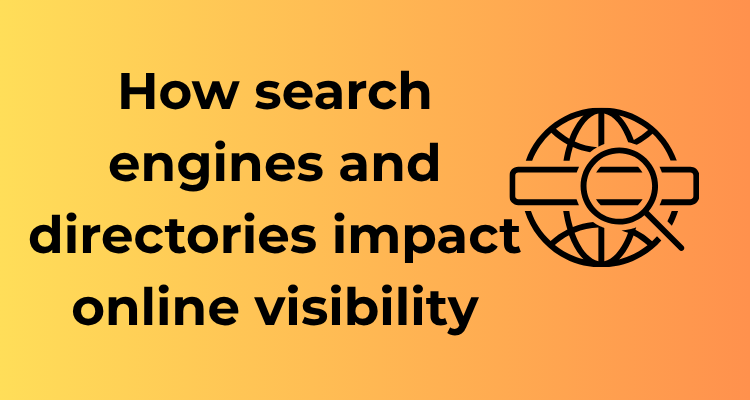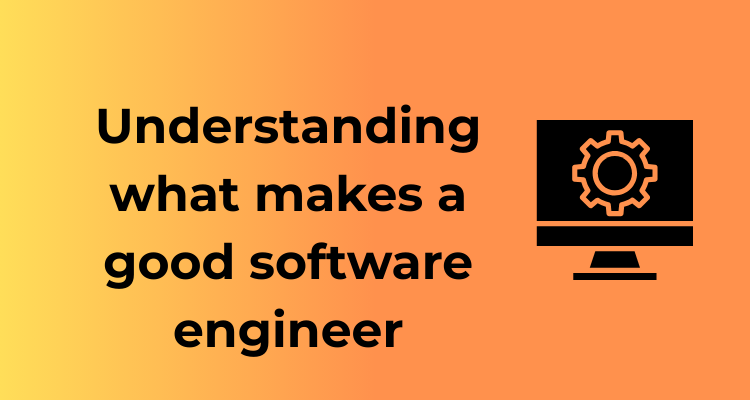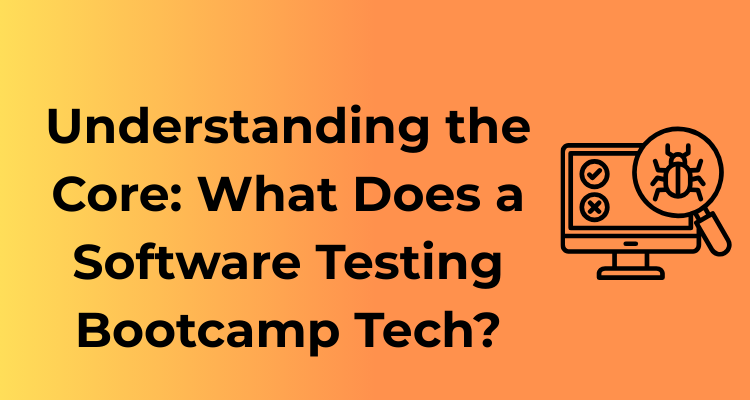Hello there! Ever wondered how the internet feels tailored just for you? It’s all thanks to a few behind-the-scenes players, and at the forefront are search engines and directories. These tools are like the architects of the internet, helping you navigate its infinite labyrinth. Let’s dive into why they’re so important and how they shape our online world.
Understanding Search Engines: The Power Players

When you think of search engines, giants like Google, Bing, or DuckDuckGo probably come to mind. They’re essentially massive databases that continuously crawl the web to gather and organize information. Every time you look up something—be it “best pizza places near me” or “how to tie a tie”—search engines use algorithms to whip up the most relevant results in milliseconds.
Here’s the kicker: search engines wield tremendous influence over what we see online. Websites clamor for a spot on the first page because, let’s face it, how often do we venture beyond it? These platforms are not just conveniences; they’re necessities for businesses aiming to capture your attention.
Future and scope of web development: Read more
Directories: The Original Curators
Before search engines reigned supreme, directories like the Yahoo Directory paved the way for finding information online. Directories involve human curation, categorizing websites into neat lists and categories. Imagine flipping through a meticulously organized catalog—like a phonebook, but way cooler.
Today, directories play a significant role, especially in local search visibility. Look at tools like Yelp, TripAdvisor, or niche-specific directories for industries like healthcare or real estate. Consumers trust these platforms because they provide filtered, specific information without the overwhelming results a search engine might deliver.
How the Two Work Together
Let’s think of search engines and directories as part of the same orchestra—each playing a distinct instrument. Search engines are the maestros, leveraging algorithms to organize a symphony of results. Directories, in contrast, offer a more concentrated, human-guided approach, helping users tap into valuable insights in specific areas.
Say you’re planning a dinner date. A quick Google search might show you 50 Italian restaurants nearby, but hopping onto Yelp might help you narrow down the list to places with stellar reviews—ones where you won’t second-guess that candlelit pasta choice.
Why This Matters for Your Business or Presence
- Search engines are where the masses go. They’re your ticket to reaching potential fans, customers, or clients around the globe.
- Directories offer a more targeted approach. By being listed on a reputable directory, you establish credibility and focus on specific audiences.
- Appearing in both ensures maximum visibility. It’s like having a backup plan—diversified, reliable, and smart.
In essence, search engines and directories are the backbone of our online journey. Whether you’re looking to increase brand awareness, enhance traffic, or simply find the nearest café before caffeine withdrawal kicks in, understanding their role can make all the difference.
Comparing Search Engines and Directories: A Clear Divide
When you think about your online experience, chances are, the word “search engine” pops into your head immediately. Google, Bing, Yahoo – we’ve all been there. But wait a second – remember directories? Those categorized listings of websites that organize information by topics or industries? Oh yes, they’re still a thing. While they may seem similar at first glance, search engines and directories operate in very distinct ways. Let’s explore this fascinating divide together, shall we?
Search Engines: The Algorithmic Powerhouses
Search engines are the gatekeepers of the internet, using sophisticated algorithms to scour billions of web pages and deliver the most relevant results when you type (or speak) a query. They rely on crawlers (also known as spiders or bots) that constantly surf the web, indexing everything they find along the way.
- Example: Google knows that when you search for “best pizza near me,” you’re likely looking for restaurants close to your physical location, thanks to its geolocation capabilities.
- Pro tip: Optimizing your website for a search engine (a.k.a. SEO) is all about tweaking content, keywords, and user experience to fit into their algorithm’s needs.
Think of search engines as personalized detectives. They focus on delivering instant, precise answers to unique user queries, tailoring results specific to your needs. But, they’re less curated – it’s all about casting a wide net and letting the algorithm do the heavy lifting.
Directories: Organized and Human-Centric
Directories, on the other hand, are like those old-school library card catalogs (remember those?). They organize websites into neat little categories and subcategories like “Travel,” “Health,” or “Restaurants.” Human editors often played a role in categorizing sites, ensuring that the information listed is relevant and comprehensive.
- Example: Check out directories like Yelp or Angie’s List – they group businesses by industry or location so you can easily discover tailored options.
- Pro tip: Listing your business on key directories isn’t just “nice to have;” it can genuinely boost visibility, especially for local customers.
Think of directories as the organized librarians of the web – they aim for curation and context, and this often makes them a favorite for niche research and local searches.
The Key Differences to Keep in Mind
At their core, the big difference lies in how search engines and directories work:
- Search engines: Automated and algorithm-driven, excelling in delivering highly-specific and time-sensitive results.
- Directories: Human-curated and category-based, making them reliable for localized or niche searches.
Both have their strengths, but they serve distinct purposes. If you’re a business owner or a content creator, knowing how to leverage them both can be a game-changer. Need visibility in a specific region? Get your name on local directories. Need global reach on a competitive keyword? Brush up on your SEO skills for search engines.
How Search Algorithms Determine What Users See
Ever wondered how the internet seems to read your mind when you type in a query? That’s not magic—it’s the work of search algorithms! Behind the scenes, these powerful systems are working tirelessly to sift through mountains of information to ensure you get the most relevant results. Let’s break down how search algorithms determine what ends up in front of your eyes when you hit “search.”
What Are Search Algorithms?

At their core, search algorithms are intricate programs designed to comb through the vast digital landscape and deliver search results based on relevance and quality. Think of them as highly skilled librarians organizing the chaotic library that is the internet. When you enter a search query, they evaluate countless factors to present information they believe will satisfy your needs.
The Secret Sauce: Ranking Factors
So, how do search algorithms decide which results to rank higher? Here’s a quick overview of some of the key ingredients in their “secret sauce”:
- Keywords: If your website’s content aligns with the words or phrases people are searching for, you’re off to a great start.
- Content Quality: Algorithms prioritize informative, well-written, and original content that offers value to the user.
- User Experience (UX): Fast-loading pages, mobile-friendly designs, and easy navigation go a long way toward earning favor.
- Backlinks: Other reputable websites linking to your content signal credibility and trustworthiness.
- User Engagement: Metrics like click-through rate, time spent on a page, and bounce rate can all indicate how useful your content is.
These factors act like puzzle pieces, helping algorithms paint the clearest picture of what your page is about and whether it deserves a top spot in search results.
Personalization: Tailoring the Results to You
Another fascinating aspect of search algorithms is their ability to customize results based on individual preferences. For instance, your location, search history, and even the device you’re using can influence what you see. While this level of personalization often makes online searches more convenient, it’s also a reminder that no two users experience the exact same internet.
The Ever-Changing Landscape
To keep things interesting, search algorithms are in a constant state of evolution. Major updates like Google’s Panda, Penguin, or the more recent Helpful Content Update can cause ripples across the web ecosystem. These updates typically aim to reward high-quality content and discourage tactics like keyword stuffing or link farming.
Expert Tip: Stay Ahead of the Curve
For brands and content creators, it’s essential to stay informed about algorithm updates. Following resources like Google’s official Search Central Blog can provide insights into upcoming changes. Additionally, focusing on evergreen strategies—such as producing genuinely helpful content—can help you weather most algorithm shifts.
The Ripple Effect of Directory Listings on Local Visibility
Have you ever searched for a local coffee shop or a nearby mechanic? Chances are, the results came from directory listings like Google My Business, Yelp, or even TripAdvisor. These directories might seem like just another spot to list your business, but here’s the thing: they have a massive impact on your local visibility. Don’t underestimate their power!
Why Do Directories Matter So Much Locally?
Most people don’t wander beyond the first page of search results when looking for businesses. When your business is listed on a directory, it occupies prime real estate in those precious results. Directories double as trust signals, too—users view them as reputable sources of information.
When someone searches for services in your area, they’ll often see directory results at the top. These platforms are hardwired into localized algorithms, helping users instantly find mapped and verified businesses near their location. So, by being visible here, businesses can effortlessly capture motivated, nearby customers.
Benefits That Ripple Across Your Local Impact
Directory listings offer more than just visibility—they supercharge how your brand is perceived in your local community. Let’s break it down:
- Boosted Credibility: A listing makes your business feel real and trustworthy. Many directories validate businesses through reviews and location verification, creating an instant layer of authenticity.
- Improved Discoverability: The more places your business appears online, the greater your chances of being found. Presence on trusted, local directories keeps your name in the game.
- Stronger SEO: Directories feed relevance and authority into search engine algorithms. Think of them as backlinks from heavyweight sites, which strengthen your rankings for local keywords.
- Enhanced Customer Engagement: Reviews, photos, and quick contact options make it easier for potential customers to pick you. Some directories even allow for direct bookings, inquiries, or chats!
Getting the Most from Your Directory Listings
Now that we know why directories are essential, let’s pivot to the how. Here are actionable steps to create ripple effects that last:
- Claim and Verify Your Business: Don’t rely on incomplete or inaccurate listings! Claim your business on major platforms like Google My Business, Yelp, and Bing Places so you can fine-tune your details. Verification signals legitimacy to both customers and search engines.
- Focus on Consistency: Your Name, Address, and Phone number (NAP) must match across all directories. Even small discrepancies can confuse both users and search engine algorithms—and we don’t want that!
- Encourage Positive Reviews: Online reviews carry weight—more than you might think. Politely ask happy customers to leave feedback about their experience. Just remember to respond graciously, whether the feedback is glowing or constructive.
- Keep Listings Updated: Change hours? New services? Make sure you’re updating your directory profiles. Stale information frustrates users and may lead them straight to your competition.
The Hidden Ripple: A Stronger Community Connection
Aside from technical and SEO benefits, directory listings can connect you directly to your local audience and foster community ties. A thoughtful response to reviews or showcasing local events on your profile can deepen customer relationships. That personal touch goes a long way!
Common Missteps Brands Make with Search Engines and Directories
Hey there! Let’s have a little chat about something that trips up even the savviest brands—mistakes with search engines and directories. Believe me, it’s more common than you’d think. Whether you’re running a local coffee shop or a global online store, staying visible online is essential. Yet, time and time again, businesses fall into the same traps. Let’s explore these missteps together so you can steer your brand in the right direction!
1. Ignoring the Power of Directories
Buckle up because this is a big one! Many businesses go all-in on search engine optimization (SEO) while completely neglecting online directories. You might think directories are old-fashioned, but they’re still incredibly valuable. Platforms like Yelp, Google My Business, and even industry-specific directories are your ticket to better local visibility.
When brands overlook these critical tools, they miss a golden opportunity to attract local customers. Make sure your business information is up to date, comprehensive, and reflects your brand personality across all platforms.
2. Inconsistent NAP (Name, Address, Phone Number) Information
Let me ask you: when was the last time you double-checked your business information? Trust me, keeping consistent NAP (Name, Address, and Phone Number) details across all search engines and directories is non-negotiable. Why? Because inconsistent info confuses both users and search engines.
If Google or Bing can’t trust that your address is accurate, your ranking can take a nosedive. Plus, imagine a potential customer heading to the wrong location because the listing was off—you wouldn’t want that to happen, right?
3. Keyword Stuffing or Over-Optimization
Here’s where some brands try a little too hard to impress search engines. Sure, keywords help your ranking, but bombarding your content with them? Not so much. Search algorithms are smarter than ever and can spot “keyword stuffing” from a mile away.
Instead, prioritize genuine, helpful content. Speak to your audience’s needs and answer their questions. This builds trust, improves user experience, and—bonus!—scores points with search engines.
4. Forgetting to Update Regularly
Another biggie—setting and forgetting. If you think listing your business once is enough, I’ve got bad news. Over time, details change. Your hours, services, or even contact information might need updating. If you’re not proactively managing your listings and search engine presence, you’re inviting trouble.
Tip: Set calendar reminders to review all online listings quarterly. A little maintenance goes a long way!
5. Neglecting Reviews
Ever heard the saying “Word of mouth is the best form of advertising?” In the digital age, online reviews hold the throne. Too many brands forget to actively monitor and respond to reviews on directories like Yelp or Google Business Profile. Silence or ignoring negative reviews sends a bad signal.
Always engage! Thank users for positive feedback and handle criticism professionally. Stellar communication sets your brand apart and fosters trust with potential customers.
The Hidden Potential of Hybrid Strategies: Combining Search Engines and Directories
Let’s be real – navigating the online landscape can feel like orchestrating a symphony. Search engines and directories might seem like separate instruments, each playing its own tune. But here’s the secret: when used together in harmony, they can create a crescendo of growth and visibility for your business!
Why Choose One When You Can Have Both?
Search engines like Google, Bing, and Yahoo are undoubtedly the kings of quick answers. They serve a massive audience, providing instant solutions to urgent questions. Directories, on the other hand, are more curated and precise, making them trusted reservoirs of niche-specific, localized information. Now think about it – wouldn’t you rather harness the strengths of both than stick to just one?
By combining these tools, you’re not only spreading your brand across a wider digital landscape, but you’re also doubling your chances of being discovered by the right audience. That’s music to any marketer’s ears!
The Benefits of a Hybrid Approach
You’re probably wondering, “What does successfully merging these strategies look like?” Spoiler alert – the payoff is huge. Here’s how taking the hybrid route can revolutionize your visibility:
- Broader Reach: Search engines help you cast a wide net while directories connect you to targeted, niche communities.
- Improved Credibility: A verified presence in a reputed directory builds trust among potential customers and search algorithms. This can enhance your rank on search engines too!
- Layered SEO Benefits: Listings in directories often provide backlinks to your website, which search engines love. It’s a two-for-one win!
Executing a Successful Hybrid Strategy
Now, let’s break down how to marry these two effectively without feeling overwhelmed:
- Optimize Your Content for Search Engines: Use strong keywords, optimize metadata, and focus on creating high-quality, informative content that attracts search engines.
- Claim Your Listings: Start by claiming your business on important directories like Yelp, TripAdvisor, or niche-specific platforms in your field. Ensure information such as your business name, address, phone number, and website link is consistent everywhere.
- Encourage Reviews: In many directories, reviews weigh heavily on how visible your listing will be. Prompt happy customers to leave positive reviews – this is a goldmine for organic growth!
- Monitor Performance: Use analytics tools to evaluate where your traffic is coming from – search engines or directories. This can help fine-tune your strategy over time.
A Few Words of Wisdom
Building a hybrid strategy requires patience, consistency, and a clear plan. Keep in mind that search engines and directories don’t compete – they complement each other. Play to their strengths! For best results, stay adaptable and keep refining. Trends change, user behaviors shift, and new platforms emerge. If you’re flexible and eager to learn, you’ll remain ahead of the curve.
Key Metrics You Need to Watch for Sustained Growth
So, you’ve got your website live, your profiles listed in directories, and your online presence started—fantastic! But how do you know if all your hard work is paying off? That’s where keeping an eye on the right metrics comes into play. Let’s dive into the key numbers that will tell you whether you’re climbing the ladder of online success or just hanging out on the bottom rung.
1. Organic Traffic: Who’s Knocking on Your Virtual Door?
Imagine running a brick-and-mortar store and not knowing how many people walk in every day. That would be odd, right? Similarly, organic traffic is the lifeblood of your online presence. Tools like Google Analytics allow you to track the number of people visiting your website through non-paid search engine results. A steady or increasing trend is a sign that your content and SEO strategies are hitting the mark!
2. Click-Through Rate (CTR): Are People Liking What They See?
What good is a meticulously optimized search result or directory listing if no one clicks on it? Your CTR measures this. It’s the percentage of people who see your link and actually click to learn more. To boost CTR, consider tweaking your titles, descriptions, or even analyzing the intent behind the keywords you’re ranking for.
3. Bounce Rate: Are Visitors Sticking Around?
Bounce rate is a sneaky yet essential metric to keep an eye on. It tells you the percentage of visitors who leave your site without exploring further. High bounce rate? It might mean that your page didn’t meet their expectations, or it’s too slow to load. Tighten up your content quality and page speed to say goodbye to those fleeting visitors!
4. Local Search Visibility Score: The Darling of Directories
If you have a local business, this one’s especially critical. Tools like Moz and BrightLocal allow you to monitor how well your business appears in local directories and local search results. The higher your visibility score, the more likely customers in your area will find you. Building consistent directory profiles and gathering solid local reviews can boost this metric.
5. Conversion Rates: From Visitors to Customers
Your ultimate goal, beyond views and clicks, is conversion. Whether you’re aiming for sign-ups, purchases, or inquiries, the conversion rate compares the number of successful actions taken to the total visitors. A fantastic way to improve this is by focusing on user-friendly design, clear calls-to-action, and offering real value through your products or services.
6. Reviews and Customer Sentiment: Social Proof Matters!
In the age of peer reviews, the comments left by your customers can make or break you. Metrics like your average rating or the number of fresh reviews come into play here. Positive online chatter fosters trust, while too many negatives could send potential customers packing.
7. Mobile Responsiveness Metrics: Are You Smartphone-Friendly?
Over half of global web traffic comes from mobile devices—yes, really! If your website or directory listing isn’t mobile-friendly, you’re losing out big time. Pay attention to metrics like mobile bounce rate and mobile site speed. Optimizing for mobile means smoother browsing, happier visitors, and better rankings too.









